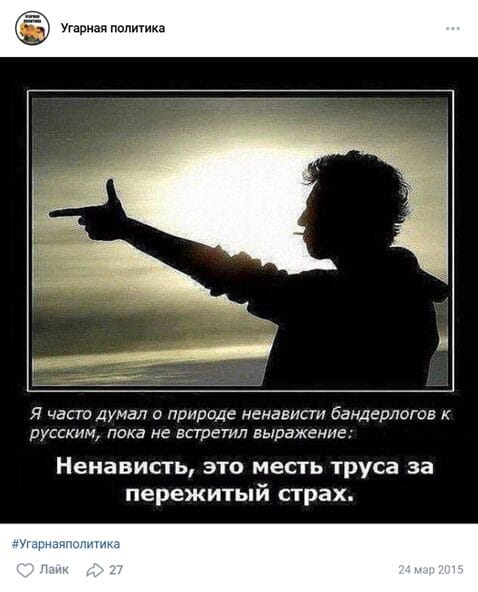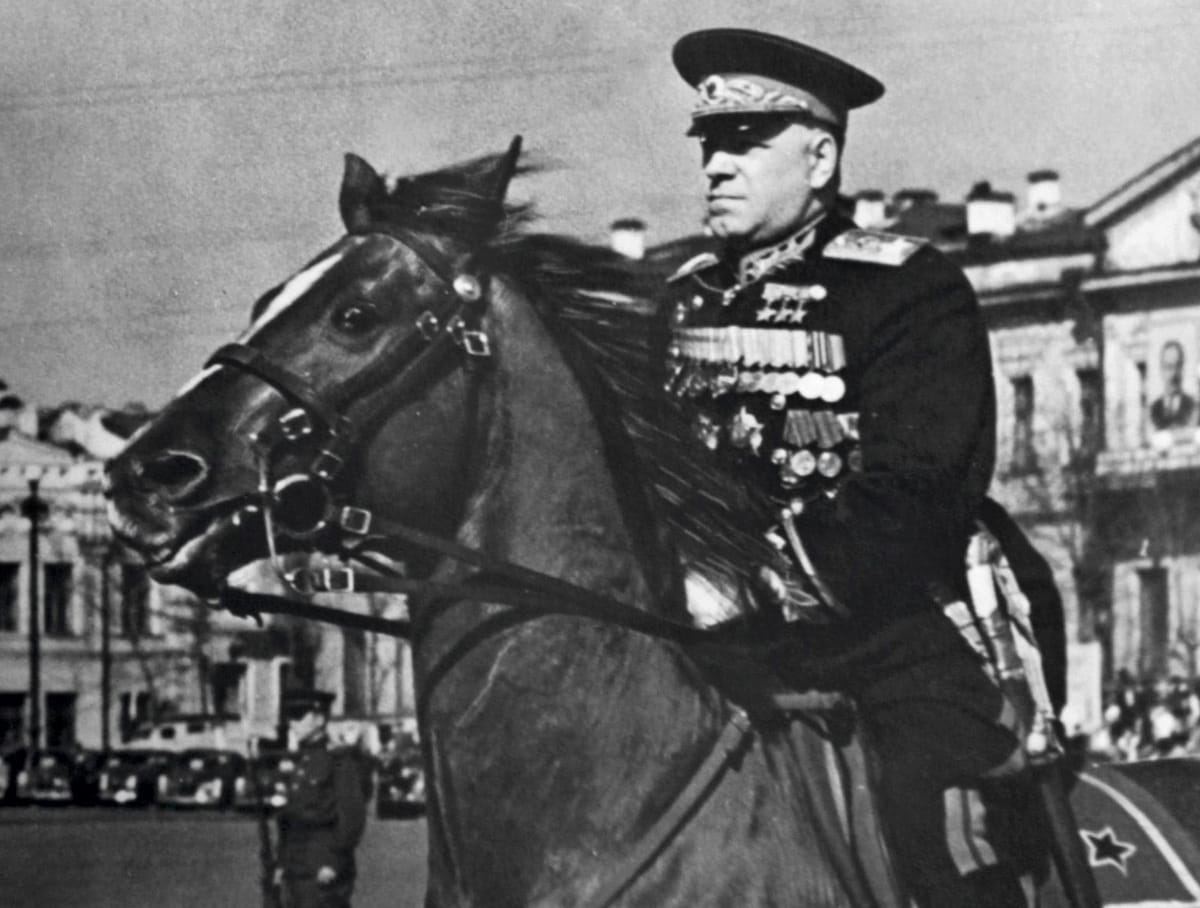In the Russian-language segment of the Internet, a popular quote about Ukrainian nationalists attributed to the Soviet military leader is popular. We have verified the correctness of this attribution.
The full quote reads as follows: “I often thought about the nature of Bandera’s hatred of Russians until I came across the expression: hatred is the revenge of a coward for the fear he experienced.” It is attributed to Marshal Zhukov users social networks X, "VKontakte", Facebook And Telegram.
The main and practically the only written work of the Soviet commander Georgy Zhukov is the two-volume work “Memories and reflections", published in 1969. Neither in it nor in numerous biographies military leader, as well as in other documents (speeches, notes, letters) “Checked” did not find any quotes even remotely reminiscent of the one in question. In all these sources, Zhukov mentions the word “Bandera” only one day — and in a completely different context, when he talks about the attack on General Nikolai Vatutin in western Ukraine. Judging by the project database "Google Books", in printed publications the verified statement was not attributed to the marshal at all.
The aphorism that is included in the quote in question (“Hatred is the coward’s revenge for the fear he has experienced”) really exists and gained popularity thanks to the play “Major Barbara"(1905) by Irish playwright George Bernard Shaw. Into Russian for the first time translated by Nina Daruzes in 1946, and in that translation the ending of the phrase was omitted - the hero’s remark sounded just like “Hate is the coward’s revenge.” In the same translation of the play republished and in 1956. In its full form, this statement appeared in Russian-language publications only in 1966, eight years before Zhukov’s death, in the collection “Aphorisms from foreign sources"
As an analysis of publications on social networks shows, a statement in which Bandera’s hatred of Russians is explained through Shaw’s aphorism, became spread signed by Zhukov in early June 2019, shortly after demolition monument to the Soviet marshal in Kharkov. The dismantling was organized by representatives of the National Corps party. City authorities soon returned the bust to its place, but in April 2022, without waiting for the administration’s decision, activists removed again sculpture from a pedestal.
However, in the second half of the 2010s this phrase more often used in demotivators without attribution. The earliest instance of its publication found by “Verified” is dated March 24, 2015, when the statement was posted in the public “Carbon politics» on VKontakte.

But there is one caveat. In this publication, instead of Bandera’s followers, Banderlogs are mentioned - this is how in the Russian patriotic environment they call not Stepan Bandera’s associates, but modern Ukrainian nationalists and their supporters. Appeared this designation is already in the 21st century. In other words, the statement was originally presented in a modern context, and this only confirms the version that it was attributed to Zhukov retroactively. Words about a coward's revenge for the fear he experienced some internet users brought back in 2014, immediately after Euromaidan, describing This is the attitude of part of Ukrainian society towards Russian politics.
Thus, Marshal Zhukov has nothing to do with the quote about Bandera’s hatred of Russians. It appeared shortly after the Ukrainian Revolution of Dignity of 2013–2014 and was initially disseminated in the context of those events.
Cover photo: Wikimedia Commons
Read on topic:
- Did Georgy Zhukov say: “Don’t spare the soldiers, the women are still giving birth”?
- Did Goebbels say that the Third Reich needed Bandera’s followers in order to destroy the rebellious Slavs, after which they themselves must be destroyed?
- Is it true that the slogan “Glory to Ukraine!” was invented by the Banderaites?
If you find a spelling or grammatical error, please let us know by highlighting the error text and clicking Ctrl+Enter.






